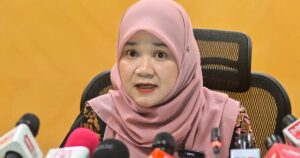
The health ministry’s “suku suku separuh” healthy plate model remains out of reach for many households due to cost reasons, said a healthcare watchdog today.
The Galen Centre for Health and Social Policy, and Universiti Teknologi Mara recently carried out a two-week online survey which saw 687 participants nationwide submit photos of their meals and estimated costs if cooked at home.
According to the survey, the cost of a balanced meal ranged between RM8.53 in Kedah and RM16.27 in Kuala Lumpur, with the average cost coming out to be RM12.57.
Other states recorded mid-range prices such as RM11.78 in Negeri Sembilan, RM11.62 in Melaka, RM10.33 in Sabah, and RM10.22 in Penang.
Johor (RM14.84), Selangor (RM14.60) and Sarawak (RM14.20) were among the higher-cost states, while Perlis (RM9.68), Perak (RM9.95), Pahang (RM8.78), Terengganu (RM8.71) and Labuan (RM9.50) remained below RM10.
“The survey clearly found that the health ministry’s ‘suku suku separuh’ healthy plate model is not affordable for most Malaysians,” said Galen Centre’s CEO, Azrul Khalib, during a forum here.
“Even when people are spending more on food in cities, it doesn’t mean that they are getting the best nutritional value.”
The “suku suku separuh” model recommends a quarter portion of protein, a quarter portion of carbohydrates, and half a portion of fruits and vegetables for each meal.
Azrul said the survey also showed that more than half of lunch meals consumed, or 57.1%, fall within the moderate calorie range of 400 to 600 calories. Around 23.6% exceeded 600 calories and only 19.2% of the meals provided less than 400 calories.
The survey recommended that the government strengthen subsidies and incentives for healthy food, establish a centralised data platform to carry out research, and engage stakeholders from the food industry.
Azrul also suggested that the health ministry could help Malaysians source for healthier meals at cheaper prices by releasing a list of suitable foods.
The survey’s findings come as the number of non-communicable diseases continues to climb in Malaysia, with the prevalence of diabetes rising from 11.6% in 2006 to 18.3% in 2019.
Last week, a health ministry subsidiary said nearly 70% of the 301,650 participants at last year’s free health screenings under the PeKa B40 scheme were found to have at least one NCD.
According to the 2023 National Health and Morbidity Survey, 2.5% of Malaysian adults suffer from all four major NCDs, while 40% of diabetics were unaware of their condition until screened.






